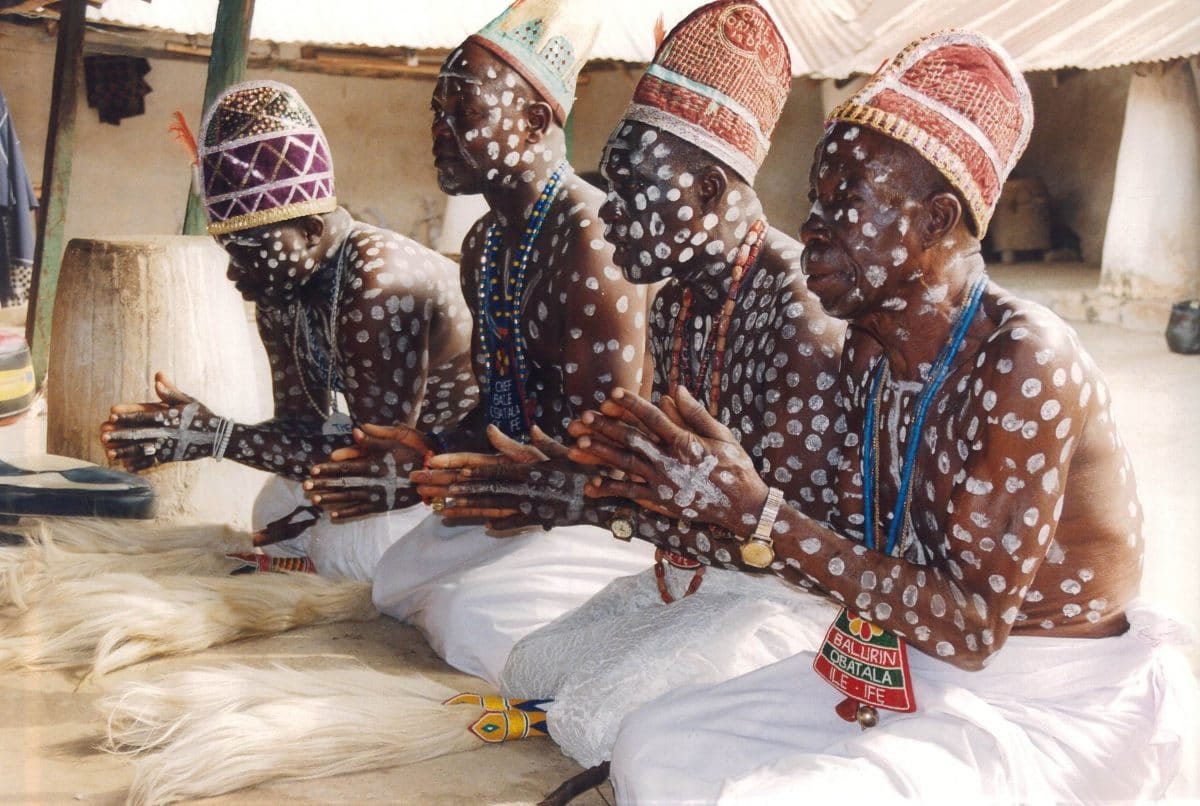Yoruba Religion

The Yoruba people of Nigeria, Benin, and Togo have a rich and vibrant religious tradition that encompasses a diverse array of beliefs, rituals, and deities. Rooted in ancient African spirituality, Yoruba religion is a tapestry woven with threads of tradition, mythology, and cultural heritage. In this article, we delve into the essence of Yoruba religion, exploring its key components and significance in the lives of millions.
Origins and Beliefs:
Yoruba religion traces its origins to the ancient city-states of southwestern Nigeria, where it evolved over thousands of years. Central to Yoruba belief is the concept of “Olódùmarè,” the Supreme Creator, who is revered as the source of all existence and the ultimate authority in the universe. Olódùmarè is believed to be transcendent and beyond human comprehension, existing beyond the realm of direct interaction with humanity.
In addition to Olódùmarè, Yoruba religion comprises a vast pantheon of deities known as the Orishas. These divine beings serve as intermediaries between humans and Olódùmarè, guiding and influencing various aspects of life. Each Orisha possesses unique characteristics, powers, and responsibilities, representing different forces of nature, human emotions, and societal principles.
Orishas:
Among the most revered Orishas are:
- Ọ̀ṣun: The goddess of rivers, fertility, love, and sensuality. She is often depicted as a beautiful woman adorned with gold and associated with the sweet waters.
- Ọ̀ṣun: The god of thunder and lightning, symbolizing power, courage, and justice. He is depicted wielding a double-headed axe and is revered for his protective qualities.
- Ọ̀rúnmìlà: The Orisha of wisdom, divination, and destiny. He is consulted through the Ifá divination system, which plays a crucial role in Yoruba religious practices and decision-making.
- Ọbàtálá: The father of the Orishas and the creator of human bodies. He represents purity, peace, and wisdom and is associated with white clothing and calmness.
These Orishas, along with many others, form a complex cosmology that reflects the intricacies of the human experience and the natural world.
Rituals and Ceremonies:
Yoruba religion is deeply intertwined with rituals and ceremonies that mark significant life events, honor the Orishas, and maintain balance and harmony within the community. One of the most important rituals is the “Itẹ̀lọ́dù,” or initiation ceremony, through which individuals are initiated into the priesthood or receive blessings from the Orishas.
Another central aspect of Yoruba religious practice is divination, particularly through the Ifá system. Ifá priests, known as “Babalawos,” serve as intermediaries between humans and the Orishas, interpreting messages from the spiritual realm and providing guidance on matters of destiny, health, and well-being.
Legacy and Influence:
Yoruba religion has left an indelible mark on the cultural landscape of Nigeria and beyond. Its influence can be seen in various aspects of daily life, including art, music, dance, and language. Yoruba religious beliefs and practices have also permeated other Afro-diasporic traditions, such as Santería in Cuba, Candomblé in Brazil, and Vodou in Haiti, reflecting the enduring legacy of Yoruba spirituality across the globe.
Conclusion
Yoruba religion is a living tradition that continues to thrive and evolve in the modern world. It serves as a testament to the resilience, creativity, and spiritual depth of the Yoruba people, offering invaluable insights into the human quest for meaning, connection, and transcendence. As we navigate the complexities of the contemporary world, the wisdom of Yoruba religion reminds us of the enduring power of tradition, community, and the sacred bond between humanity and the divine.





